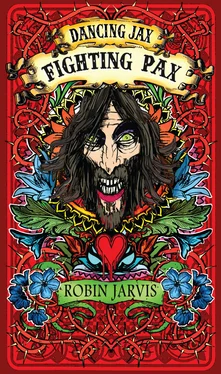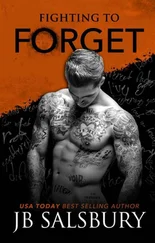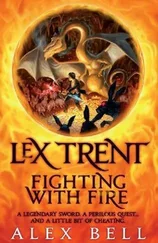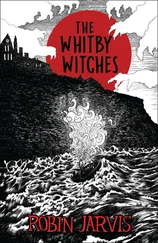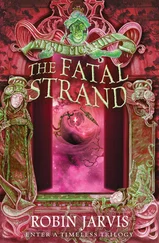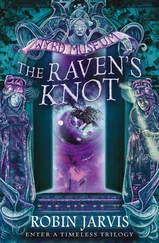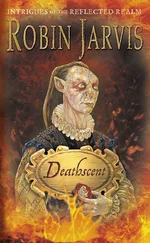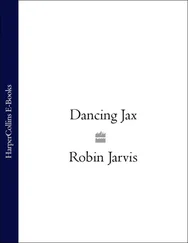Maggie lost track of the times she had repeated the same information.
“No, it’s not a normal book,” she had said, struggling to explain the unexplainable. “It sucks you in and you really believe you’re one of the characters in it and all this, the real world, is just a dream. Honest, that’s what it is – and you wear a playing card to show who you are in that story! No, it didn’t work on me, or any of the others here. We don’t know why, it just didn’t. That’s why they locked us up and treated us worse than animals. We were rejects. You wouldn’t believe what they did to us.”
The interviewer pressed for details and the interpreter had difficulty keeping up with the barrage of questions. Maggie was shown footage, gathered by the Research Department for External Intelligence, of foreign cities where protests against Dancing Jax had escalated into violent riots. Bookshops and publishers were firebombed. Civil war had burned fiercely but briefly until everyone was under the book’s spell.
“Same happened in Britain,” she said, watching a pitched battle storm through the streets of Moscow, between those who had read it and those who hadn’t. “We went through all that. You can’t fight it. It’s too strong. Then there are the… things.”
The microphone almost poked her in the nose as it was pushed closer.
“Somehow things are coming through, from the book,” she said. “It sounds mad, but it’s true. Nightmares, monsters in those fairy tales, are becoming real. I’ve seen them, I’ve fought them. I thought the Punchinello Guards were bad enough, but then there were… I dunno what they really are, but they’re called Doggy-Long-Legs in the book and all they want to do is eat your face. One of the guards had his nose chewed right off. Then there was the… we never found out what it was – all giant worms and tentacles. It killed my… a friend of mine. It got him – it got my Marcus.”
Maggie fell silent. The interview had then cut to a segment of an American news report from several months ago, back when America was wondering what was happening in the UK. It was second- or third-generation video, again acquired by the intelligence department. The reporter was Kate Kryzewski, speaking from Kew Gardens, investigating a previously unknown invasive shrub with pulpy grey fruit, called minchet. Eventually she too had fallen victim to the power of the book.
When the news cut back, Maggie had been replaced by a self-conscious, bespectacled boy wearing a cowboy hat. “Er… yes,” he said. “That stuff grows everywhere now and it stinks. The creatures from the book eat it, as well as other things… and the Jaxers use it to heighten the reading experience. Makes it better… sharper somehow. It tastes worse than it smells though and gives you gut ache.”
“Gives you the trots!” Maggie’s voice shouted off camera.
The picture cut to an army scientist holding a single horned skull, fixed to a stout stick. The austere, shouting voice-over told the audience it had been thoroughly examined and undergone testing. It was not a hoax; this was a genuine unicorn skull. In North Korea they called it a kirin and its appearance was seen as an auspicious sign, for these mythical creatures only appeared during the reign of wise rulers. But where had it come from? None of the children seemed to know and the boy in the Stetson only admitted to bringing it from the camp. Another strange item was held up for the viewers. A long, crooked silver wand, tipped with an amber star. The interviewer waved it around, pulling comical faces. Maggie said it belonged to the retired Fairy Godmother character, but didn’t say how it came to be in the camp. Both it and the skull were confiscated.
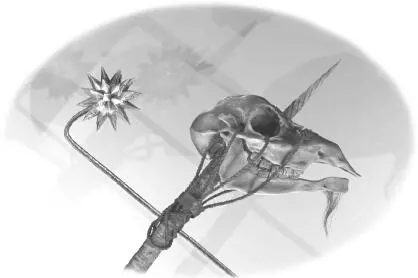
“I don’t want my damn face on TV!” Lee had growled, among other things that didn’t get translated.
“What they do to you?” he was badgered. “What they do?”
“You really wanna know?” he snarled back. “They dragged my girlfriend to an abattoir and slaughtered her like a pig, that’s what. Then those sick bastards fed her to us. You got that? You comprende that? Yeah, you heard right – they fed her to us!”
And so the Democratic People’s Republic of Korea learned about Dancing Jax . For once the ceaseless, bombastic propaganda machine didn’t need to exaggerate the evils of the imperialist Western aggressors; in fact, it concentrated its efforts in downplaying the dangers to dampen the mounting sense of panic. Yes, it was a state of emergency and they stood alone against the entire world, but that was nothing new. Such a crisis is what their founder, Kim Il-sung, foresaw in his great wisdom and why they would survive even this. Whatever threatened their borders would be dealt with. They had no need to fear. Kim Jong-un, the founder’s grandson, would ensure no harm would come to his people. They would remain isolated from the world and stay safe.
But the presence of the foreign children was a constant reminder of the outside danger and so, when that first week was over, the special treatment, the visits, the interviews stopped. Then the only adult female, Mrs Benedict, was found dead in the bathroom of their hotel. She had killed herself and the euphoria of having escaped the camp died with her. Two nights later, they were all removed from Pyongyang.
Maggie recalled that less comfortable journey in the back of military trucks through rugged, hilly terrain and seemingly endless forests, along rudimentary roads until, finally, they reached this secret base built into the mountain. The holiday was over. They had swapped one prison for another.
“Your face will freeze and drop off out here,” a friendly voice declared.
The teenage girl blinked. She had stared into the fog too long and her eyes ached. Turning away from the blank void, she saw a neat, elderly gentleman approaching along the terrace.
“Morning, Gerald,” she called, glad to see him. “I was miles away.”
“A chon for your thoughts?”
“Oh – I was thinking back to when we first got here.”
The man clapped his gloved hands and shuddered inside his overcoat.
“All those months ago,” he said. “When you piled out of those wagons. It was like something from Oliver! I almost started singing ‘Consider yourself’ and giving you my Artful Dodger.”
He gripped his lapels and did some nimble footwork. Maggie laughed.
“More like an Artful Codger nowadays, mind,” he chuckled.
“I wish I’d seen you back when you were performing,” Maggie said. “I bet you were amazing.”
Gerald Benning put his arm round her. He never really spoke about his show-business past, but somehow word had got around the children here, probably via Martin, and they liked to ask him questions about his former life. Gerald always answered with good humour, but usually steered the conversation around to other things and asked them about themselves. He thought it was important to remind them, especially the younger ones, what their world was like before all this had happened.
He got them talking about the little aspects of that time, the simple things that they’d forgotten: family holidays, best birthday presents, favourite movies and songs, names of pets and who they’d sat next to in school. He didn’t promise them that, one day, those things would return and everything would be as it was. That would have been cruel. They wouldn’t have believed him anyway. But those memories told them they weren’t just refugees dependant on the charity of a suspicious nation, and that there had been goodness and love in their lives, and they shouldn’t hate their parents for rejecting them. It wasn’t their fault. Dancing Jax was to blame.
Читать дальше
